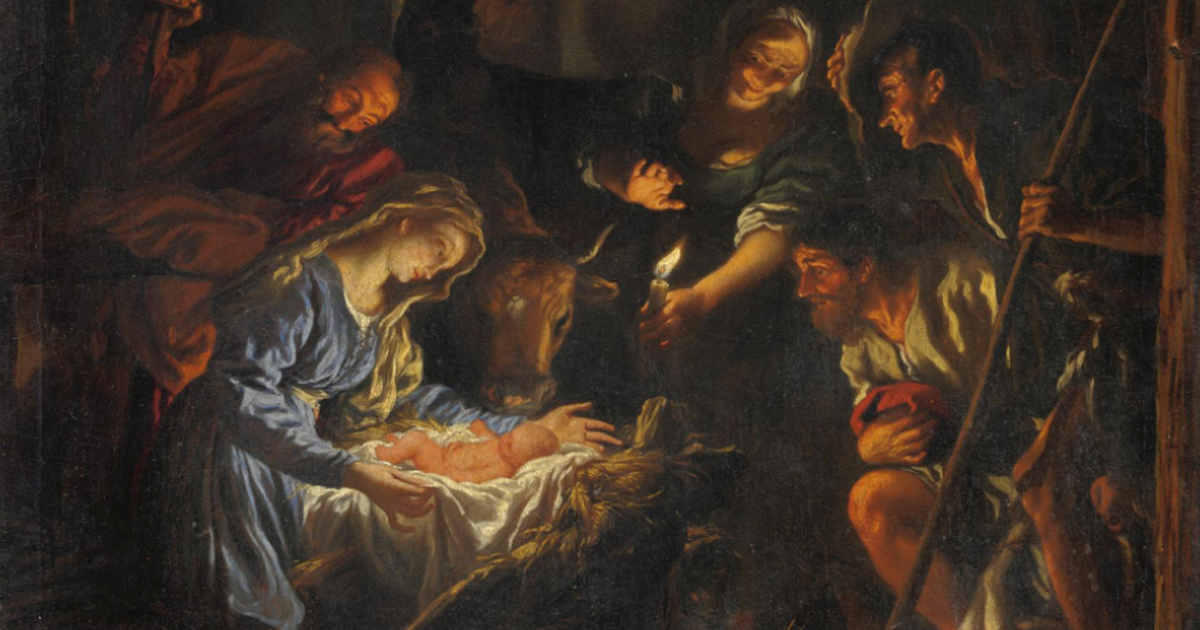Was the Incarnation of the eternal Son “Plan B,” an aberration of God’s original intent for his relationship with creation? We know that because God works all things after the counsel of his own will (Eph 1.11), sovereignly determining the course of history, that there is no “Plan B.” Even sin was somehow a part of the original good plan of God. I am speaking in terms of the trajectory of creation and God’s relationship to it had sin not entered the world. To put it another way, is the Incarnation only a rescue operation? Did the eternal Son become flesh only for the purpose of rescuing man and the created order from sin? I don’t think so. I believe that the Incarnation would have happened even if sin had not entered the world.
The Incarnation reveals God’s fundamental intent for his relationship with creation: union and communion; God dwelling in/with man and man dwelling in/with God. Hints of this are given in Proverbs 8 where pre-incarnate Wisdom’s relationship with Yahweh and the creation are poetically described. Wisdom is beside Yahweh. He is a master craftsman, forming and filling the created order. There is a mutual delight and rejoicing between the two Persons. But there is also rejoicing and delight in the inhabited world, in the sons of men (Pr 8.30-31). The delight and rejoicing that Yahweh has with Wisdom eternally is the delight and rejoicing in which he wants the creation to share. Creation’s fundamental purpose, even apart from sin, was to get caught up in the life of God himself.
We hear purpose throughout the story of Scripture. God desires to dwell with or tabernacle with men. This was the promise that God gave to Israel when they constructed the earthly tabernacle. “And let them make me a sanctuary, that I may dwell in their midst” (Ex 25.8; cf. also 29.45; Lev 26.12). The tabernacle was a copy of God’s heavenly throne room and the place where heaven and earth were joined. God’s intention is for heaven and earth to be united. This intention is realized when we see the end of history in Revelation 21.3: “And I heard a loud voice from the throne saying, ‘Behold, the dwelling place of God is with man. He will dwell with them, and they will be his people, and God himself will be with them as their God.’”
But wasn’t that the case before sin? No, it wasn’t. Before the fall there was no sin that created hostility between God and man, but there was a friendly separation that could only be overcome through growth and fulfilling the original mission. On day two of creation, God separated the waters below from the waters above with a firmament (Gen 1.3-5). Above that firmament was God’s throne room. The project of dominion was to bring the earth to maturity so that it imaged heaven–God’s will done on earth as it is in heaven. When the earth matured to this point, heaven and earth would be united. God would dwell in/with the created order and the created order would dwell in/with God. To put it another way, God would clothe himself with creation. If you think about it, this is what God did in the tabernacle in Israel. The tabernacle was made from all the various materials of creation–plants, animals, and stones–and God dwelt in it, clothing himself with the creation and tabernacling or dwelling with men.
John tells us in his opening chapter that “the Word was made flesh and tabernacled among us” (Jn 1.14). In the Incarnation we see the original design of creation fulfilled: heaven and earth are joined. God the Son clothes himself with human flesh, creation, so that God dwells with man.
The Incarnation was a rescue mission, but it wasn’t only a rescue mission. Sin widened the divide between heaven and earth and made it a hostile division. The mission intensified, but it wasn’t fundamentally changed. In the Incarnation, God took upon himself man’s mission to do for us what we could not do for ourselves so that his purpose of delightful union and communion with us would be realized.
The Incarnation was always the plan.















